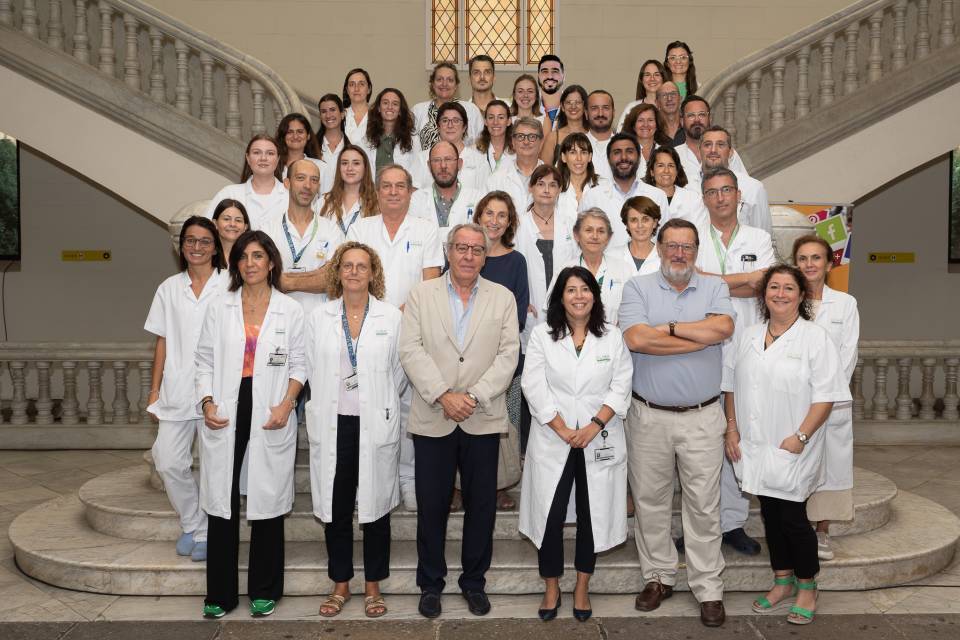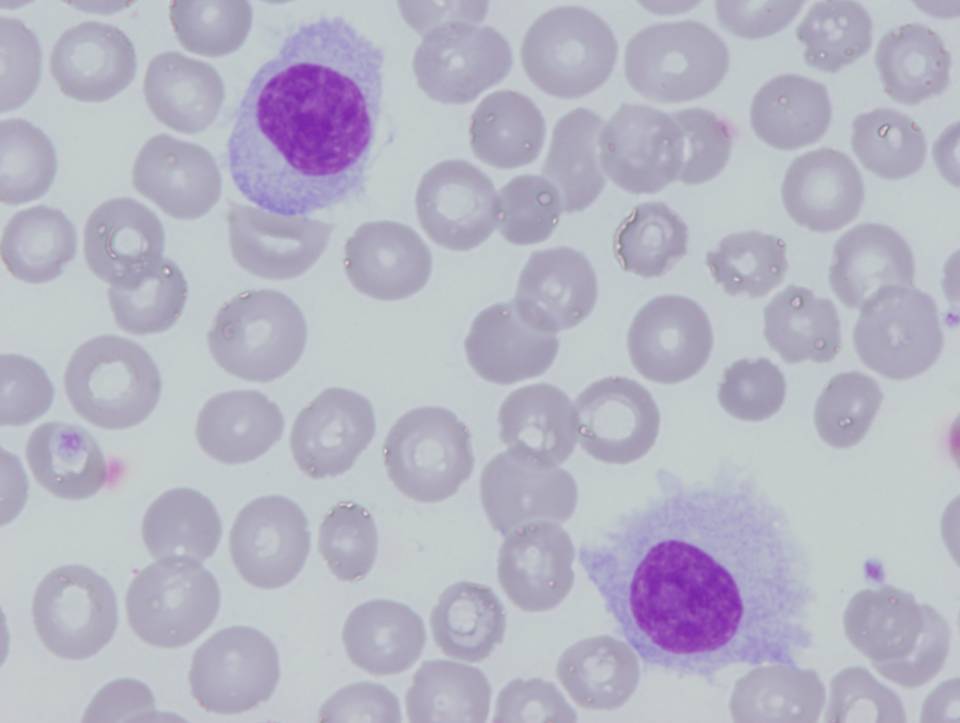The Pathological Anatomy Service of the Hospital Clínic participates in the following Units:
The Service performs an average of 1,500 intraoperative studies each year that guide the surgery of more than a thousand patients. This allows it to develop an increasingly precise and conservative operation.
The Service continuously incorporates the latest technological innovations and offers citizens everything from state-of-the-art mass sequencing techniques (NGS), which allow the analysis of hundreds of genes simultaneously, to the most sensitive techniques for the monitoring of the minimum residual disease based on digital PCR.
The Service performs about 35,000 biopsies for cancer screening, which promotes early diagnosis of cervicovaginal and colorectal cancer. Each year, it studies the expression of tissues of more than 50,000 proteins, including relevant prognostic markers and therapeutic targets that allow much more accurate personalized treatments to be targeted.
The Service actively pursues strategic alliances with other hospitals and institutions in the area. It is currently collaborating with the Sant Joan de Déu Pediatric Hospital in Barcelona, the Granollers Hospital, the Vic Hospital and other hospitals in Europe, Latin America and Africa. With some of them, such as the Maputo Hospital in Mozambique, they have been holding weekly diagnostic teleconferences through telepathology since 2013.
Currently, the Service has the largest autopsy room in Catalonia, and the only one with the appropriate level of Biosafety to meet the needs of pandemics such as COVID-. It also has state-of-the-art technology to enable the most innovative virtual autopsies to be carried out, which allows the training of students as well as the remote participation of healthcare professionals.
The Service is structured in five sections focused on specific diagnosis and quality in the different subspecialties that make it up, always from a multidisciplinary, integrative and molecular point of view.
Thoracic, Digestive and Metabolic Pathology
- The pathological subspecialties that make up the Section are divided into four major blocks:
- Hepatobiliary and pancreatic pathology
- Digestive pathology
- Thoracic and cardiovascular pathology
- Endocrine pathology
Medical-Surgical Pathology, Dermatopathology and Neuropathology
The pathological subspecialties that make up the Section are divided into four major blocks:
- Neuropathology and Muscle Pathology
- Dermatopathology
- Pathology of the Head and Neck
- Osteoarticular pathology
Genitourinary and Perinatal pathology
The pathological subspecialties of this Section are divided into five major blocks:
- Uropathology
- Breast Pathology
- Nephropathology
- Gynecopathology
- Perinatology and Obstetrics
Hematopathology
The Hematopathology Section, created in 1997, has as its main purpose the diagnosis of hematological neoplasms from an integrated and multidisciplinary perspective. The diagnoses are based on the revised classification of hematological neoplasms of the 2017 WHO, in which members of the Section have actively participated.
The Section is a pioneer in the diagnosis of haematological neoplasms and integrates the results of analytical studies into a single diagnostic report. It also performs biological control of disease monitoring under treatment with integrated studies to detect minimal residual disease.
The medical and technical staff is highly qualified and has extensive experience in performing and interpreting these tests. It is made up of doctors specializing in hematology and pathological anatomy, doctors specializing in human genetics and molecular biology and technical laboratory staff.
The Section not only carries out the classical morphological studies of cytology, cytochemistry and histopathology of peripheral blood, bone marrow, lymph nodes and other hematopoietic tissues, but also has its own methodology for biological analysis in a highly specialized laboratory.
Pediatric Pathology
The Pediatric Pathology Section, created in 2015, carries out its main activity at the Hospital de Sant Joan de Déu in Barcelona, in the diagnosis of pediatric neoplasms, as well as rare and hereditary diseases that affect this population.


